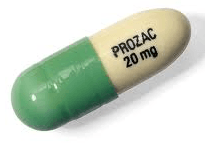 Another study has linked SSRIs to birth defects. A study published in the British Medical Journal July 8, 2015 links some SSRI drugs with birth defects. (BMJ – 8 July, 2015)
Another study has linked SSRIs to birth defects. A study published in the British Medical Journal July 8, 2015 links some SSRI drugs with birth defects. (BMJ – 8 July, 2015)
Authors of the study were Jennita Reefhuis, research health scientist, Owen Devine, senior statistician, Jan M Friedman, professor, Carol Louik, epidemiologist, Margaret A Honein, senior research health scientist on behalf of the National Birth Defects Prevention Study.
Study Abstract
The study’s objective was to follow up previously reported associations between periconceptional use of selective serotonin reuptake inhibitors (SSRIs) and specific birth defects using an expanded dataset from the National Birth Defects Prevention Study.
Design Bayesian analysis combined results from independent published analyses with data from a multicenter population based case-control study of birth defects.
18,000 Mothers with Birth Defect Infants
The study setting was 10 centers in the United States. Participants were 17,952 mothers of infants with birth defects and 9,857 mothers of infants without birth defects. Participants were identified through birth certificates or birth hospitals, with estimated dates of delivery between 1997 and 2009.
Celexa, Lexapro, Prozac, Paxil, Zoloft Exposures
The women were exposed to Citalopram (brand: Celexa), escitalopram (Lexapro), fluoxetine (Prozac), paroxetine (Paxil), or sertraline (Zoloft) in the month before through the third month of pregnancy. Posterior odds ratio estimates were adjusted to account for maternal race/ethnicity, education, smoking, prepregnancy obesity.
Main outcome measured 14 birth defects categories associated with SSRIs reported in the literature.
Results
The drug most commonly used by study participants was Zoloft (sertraline), then Prozac (fluoxetine) and Paxil (paroxetine), Celexa (citalopram), and Lexapro (escitalopram). None of the five previously reported birth defects associations with sertraline was confirmed. For nine previously reported associations between maternal SSRI use and birth defect in infants, findings were consistent with no association. High posterior odds ratios excluding the null value were observed for five birth defects with paroxetine (anencephaly 3.2, 95% credible interval 1.6 to 6.2; atrial septal defects 1.8, 1.1 to 3.0; right ventricular outflow tract obstruction defects 2.4, 1.4 to 3.9; gastroschisis 2.5, 1.2 to 4.8; and omphalocele 3.5, 1.3 to 8.0) and for two defects with fluoxetine (right ventricular outflow tract obstruction defects 2.0, 1.4 to 3.1 and craniosynostosis 1.9, 1.1 to 3.0).
Conclusions: Paxil, Prozac increase Birth Defects
These data provide reassuring evidence for some SSRIs but suggest that some birth defects occur 2-3.5 times more frequently among the infants of women treated with paroxetine or fluoxetine early in pregnancy.
One in 33 Babies suffer Birth Defects in U.S.
Birth defects are now sadly common, affecting 1/33 babies born in the U.S., though scientists are still in the early stages of determining their causes. Since the FDA issued an advisory warning of a potential association in December 2005 between paroxetine (Paxil) and heart defects in infants, researchers have launched numerous studies attempting to confirm the problem but have reached conflicting conclusions.
Related
- British Medical Journal: SSRIs and Birth Defects (8 July 2015)
- Study links SSRIs to Birth Defects
- Birth Defect Drug Lawsuit
- Prozac Lawsuit
- Paxil Lawsuit

by Matthews & Associates




